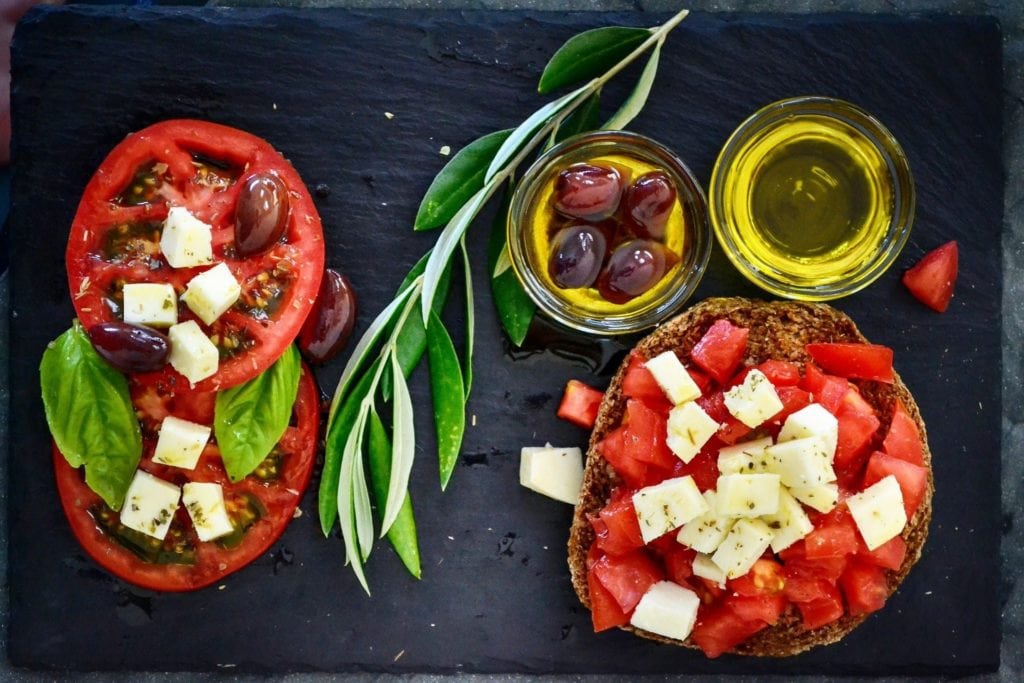How An Olive Oil Rich Diet Helped To Keep Our Brave Firefighters Fighting Fit
Updated 23rd July 2024

Summary
Contents
The best olive oils, such as Morocco Gold Extra Virgin Olive Oil, are considered to be a healthy monounsaturated fat. Nutritional habits which include healthy fats, such as the Mediterranean diet have been associated with lower fatality rates from all causes as well as a reduced risk of obesity, high blood pressure, type 2 diabetes and other risk factors for heart disease.
As summarised by a report in USA Today, Firefighters who most closely followed the Mediterranean diet had a 35% decreased risk of metabolic syndrome, a combination of heart disease risk factors that includes a large waistline, high blood pressure, high blood sugar, high triglycerides (blood fats) and low HDL (good) cholesterol — compared with those who were following the diet least closely.
Firefighters,The Mediterranean Diet and Cholesterol

Additional findings from the research, based on the dietary habits of 780 Midwestern firefighters using a modified Mediterranean diet score (mMDS) derived from a comprehensive lifestyle questionnaire, found the following:) Respondents who followed the Mediterranean diet, which includes health fats like extra virgin olive oil, most closely had a 43% reduced risk of gaining 5 or more pounds over the past five years compared with those who consumed a diet that was the least like the Mediterranean diet.
- Respondents who followed the Mediterranean diet, which includes health fats like extra virgin olive oil, most closely had a 43% reduced risk of gaining 5 or more pounds over the past five years compared with those who consumed a diet that was the least like the Mediterranean diet.
- Participants who followed the Mediterranean diet were more likely to have higher HDL (good) cholesterol and lower LDL (bad) cholesterol.
- Obese firefighters involved in the study were more likely to report a higher intake of sugar-sweetened beverages and fast food.
Extra Virgin Olive Oil and Cardiovascular Health
What are cardiovascular diseases?
Cardiovascular diseases (CVDs) are the number 1 cause of death globally: more people die annually from CVDs than from any other cause.
An estimated 17.9 million people died from CVDs in 2016, representing 31% of all global deaths. Of these deaths, 85% are due to heart attack and stroke.
Most cardiovascular diseases can be prevented by addressing behavioural risk factors such as tobacco use, unhealthy diet and obesity, physical inactivity and harmful use of alcohol using population-wide strategies.
Cardiovascular diseases (CVDs) – World Health Organization
CVDs encompass a range of conditions, including:
- Deep Vein Thrombosis (DVT) and Pulmonary Embolism (PE): DVT occurs when blood clots form in deep veins, usually in the legs, which can travel to the lungs, causing a PE.
- Coronary Artery Disease (CAD): This occurs when the blood vessels supplying the heart muscle become narrowed or blocked, leading to chest pain (angina) or heart attacks.
- Cerebrovascular Disease: This refers to disorders affecting the blood vessels in the brain, which can result in strokes.
- Peripheral Arterial Disease (PAD): This condition involves the narrowing of blood vessels in the limbs, leading to pain and mobility issues.
- Rheumatic Heart Disease: Caused by damage to the heart valves from rheumatic fever, often following a streptococcal infection.
- Congenital Heart Disease: This includes malformations of heart structures existing at birth.
Causes and Risk Factors
CVDs are primarily caused by a combination of genetic and lifestyle factors. The most significant risk factors include:
- Tobacco Use: Smoking damages blood vessels, leading to the buildup of fatty plaques and increasing the risk of heart disease and stroke.
- Unhealthy Diet: Diets high in saturated fats, trans fats, salt, and sugar contribute to the development of CVDs by increasing blood pressure, cholesterol levels, and body weight.
- Obesity: Excess body weight strains the heart and increases the risk of CVDs.
- Physical Inactivity: Lack of exercise contributes to obesity, high blood pressure, and cholesterol levels, all of which are risk factors for CVDs.
- Harmful Use of Alcohol: Excessive alcohol consumption can lead to high blood pressure, heart failure, and stroke.
At the age of 24, your risk for CVD is just 20%. By age 45, your chances more than double to 50%. Over the age of 80, 90% of individuals have some form of CVD.
Most cardiovascular diseases can be prevented by addressing behavioural risk factors such as tobacco use, unhealthy diet and obesity, physical inactivity and harmful use of alcohol using population-wide strategies.
How Extra Virgin Olive Oil Helps To Protect Against CVD
The increased focus on healthy food and healthy diet has seen more food lovers turn towards diets like the Mediterranean diet and the Keto diet. Whether this is for specific health reasons, a diet to lower cholesterol, a diet for high blood pressure, a diet for weight loss or for overall wellness one of the key constituents that remains a constant is extra virgin olive oil, the original superfood.
What makes extra virgin olive oil so special is that it has stood the test of time as a superfood from the time of the ancients. Olive oil has long been considered sacred. The olive branch was often a symbol of abundance, glory, and peace. Over the years, the olive has also been used to symbolize wisdom, fertility, power, and purity.
In ancient Rome, olive oil was used for nearly everything in relation to their health. Roman medicine takes heavily from Greek doctors, who influenced European medicine for centuries, and Hippocrates, the father of modern medicine writes about over 60 different conditions or ailments that can be treated with olive oil.
Olive oil is now probably the most widely researched superfood on the planet and its many health benefits are evidence based and well understood. Thanks to the recent spotlight on the Mediterranean Diet, extensive research has been done on the phytonutrient composition of olive oil. What has been discovered is an extensive list of phytonutrients; one of the most praised is its polyphenols. The number of polyphenols found in Extra Virgin Olive Oil is truly amazing!
Extra Virgin Olive Oil And The Cardiovascular System
Lowering your risk of cardiovascular problems is an area upon which several recent studies on Extra Virgin Olive Oil have focused. Chronic inflammation is a risk factor for many types of cardiovascular disease, and Extra Virgin Olive Oil has well-documented anti-inflammatory properties.
One place we don’t want excessive ongoing inflammation is within our blood vessels. Our blood supply is just too important for maintaining the health of all our body systems, and it cannot effectively support our body systems when compromised with ongoing inflammation. Given this relationship, it’s not surprising to see cardiovascular benefits of Extra Virgin Olive Oil rising to the top of the health benefits provided by this remarkable oil.
From a variety of different research perspectives, we know that daily intake of Extra Virgin Olive Oil in amounts as low as one tablespoon per day reduces inflammatory processes within our blood vessels. By reducing these processes, Extra Virgin Olive Oil also reduces our risk of inflammation-related cardiovascular diseases like atherosclerosis.
Yet anti-inflammatory benefits are not the only cardiovascular benefits provided by Extra Virgin Olive Oil. Two other broad types of heart-related benefits are well documented for this oil. The first type is lessened risk of forming unwanted blood clots. While blood clotting is a natural and healthy process required for the healing of wounds and prevention of excessive bleeding, clotting in the arteries can ultimately result in a heart attack or stroke.
One risk factor for unwanted clotting in our arteries is excessive clumping together of our platelet blood cells. This clumping process is also called “aggregation.” Regular incorporation of Extra Virgin Olive Oil into a meal plan has been shown to lessen the risk of this excessive aggregation, and the reason that researchers refer to Extra Virgin Olive Oil as an “anti-aggregatory” oil.
The other broad area of cardiovascular benefits involves improved levels of circulating fats in our bloodstream, as well as protection of those fats from oxygen-related damage. Decreased levels of total cholesterol and LDL cholesterol following consumption of Extra Virgin Olive Oil are findings are the vast majority of studies that have analysed this relationship.
Yet equally important, the cholesterol molecules that remain in our blood also appear to be better protected from oxygen-related damage (oxidation). Since fats and cholesterol belong to a broader technical category called “lipids,” damage to the fats and cholesterol in our blood stream is typically referred to as “lipid peroxidation.” And it is precisely this lipid peroxidation process that gets reduced through incorporation of Extra Virgin Olive Oil into a meal plan.
